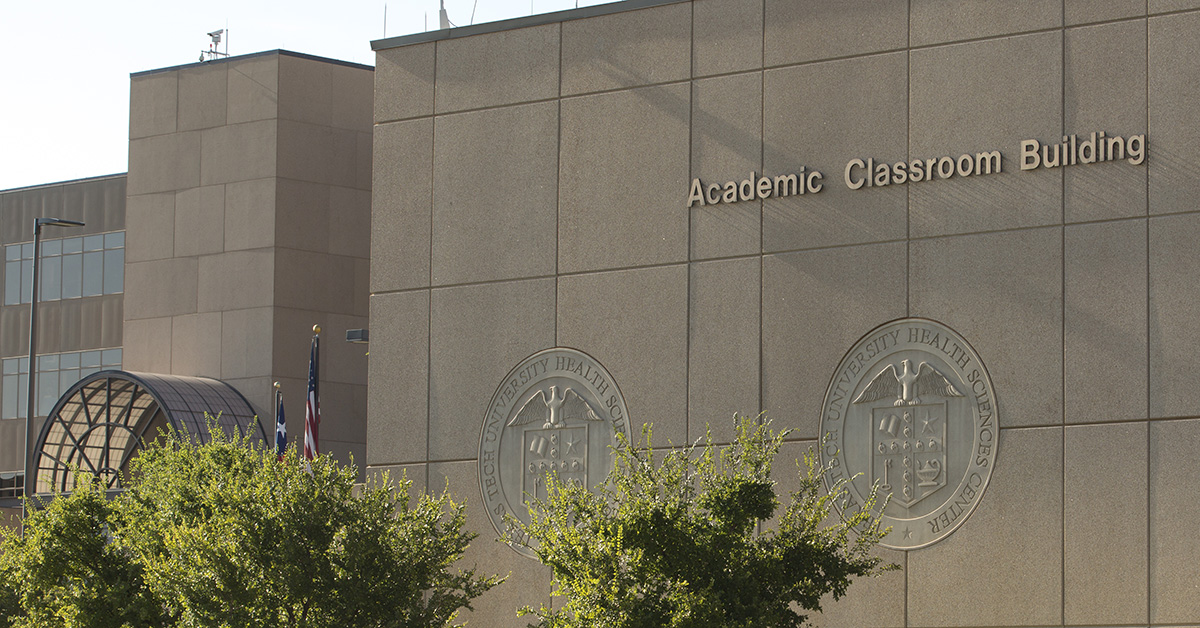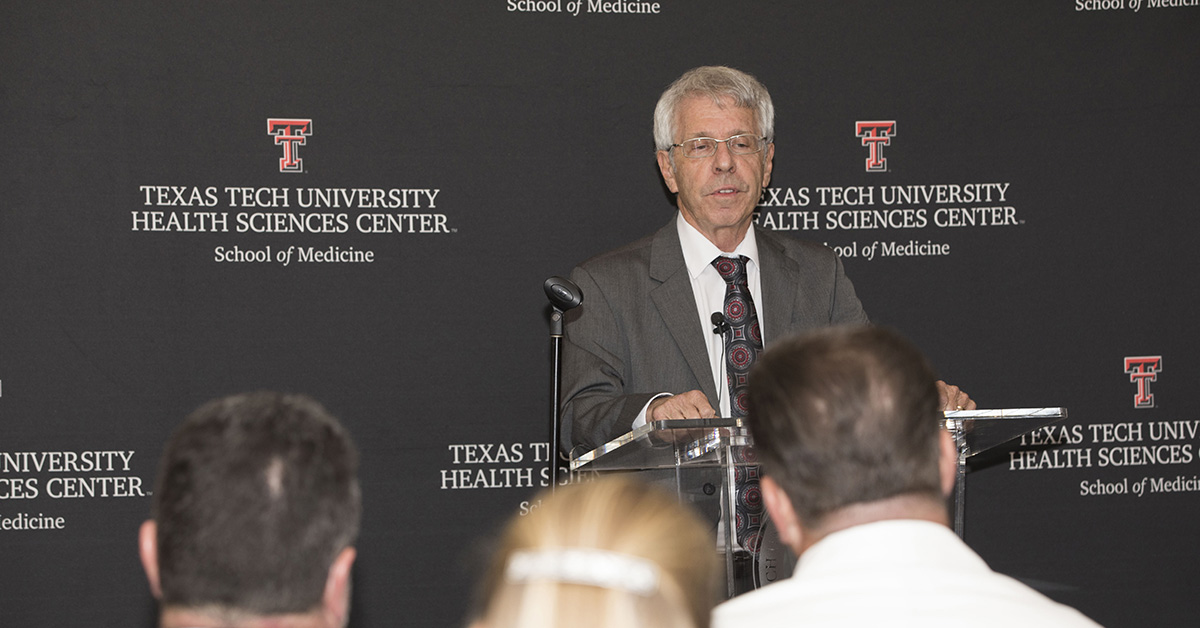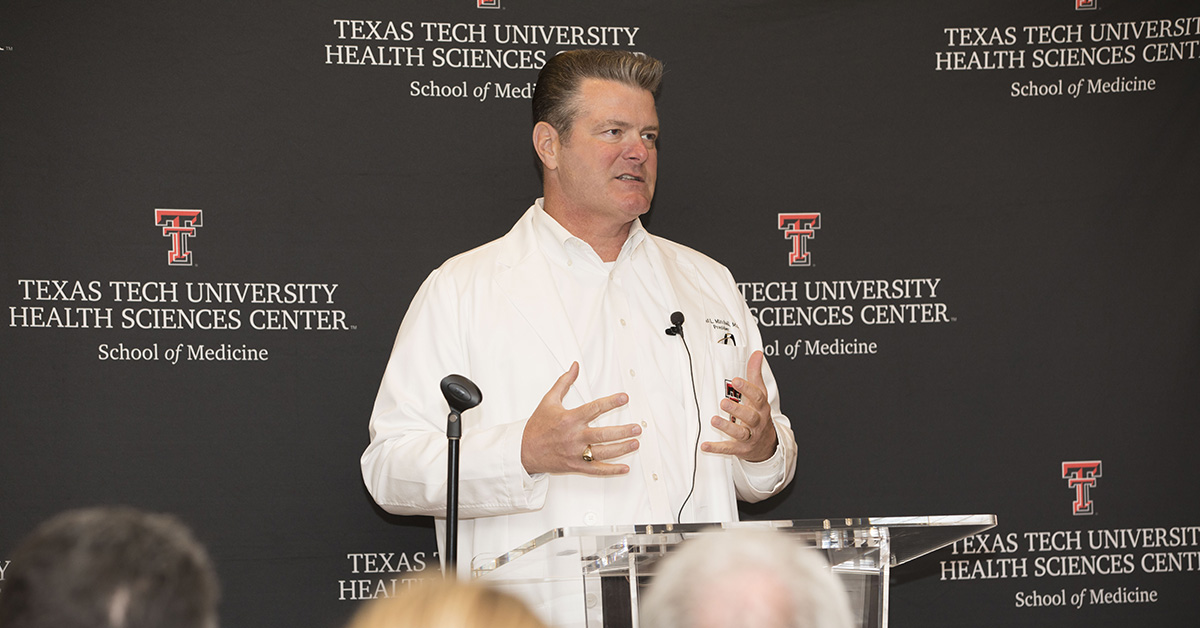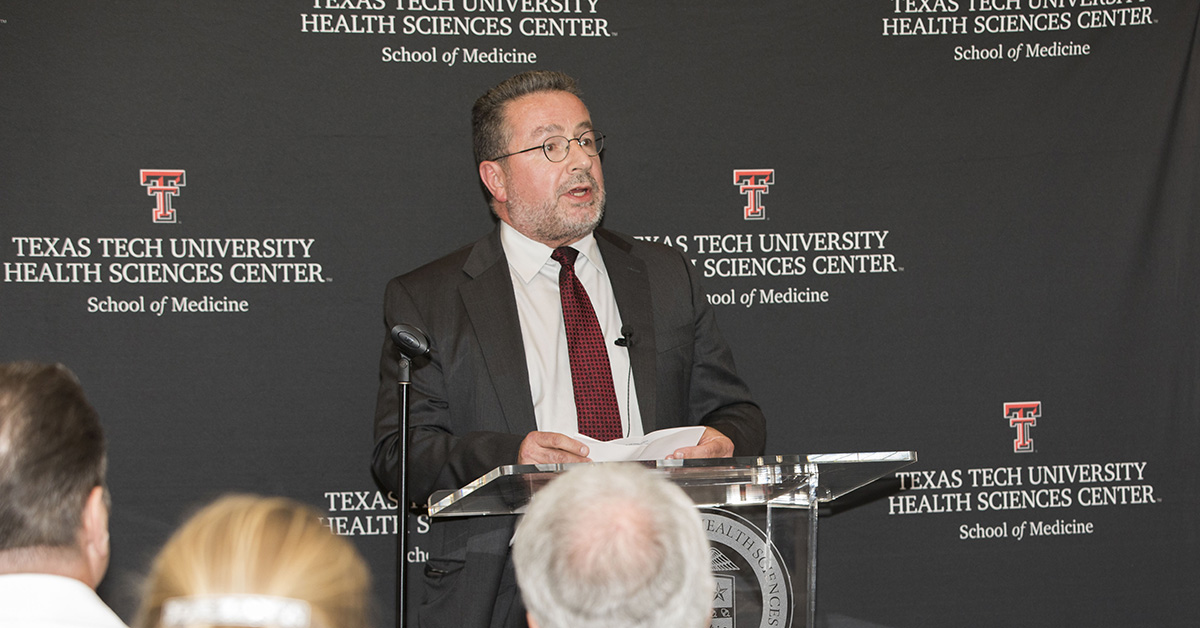TTUHSC School of Medicine Announces More Than $20 Million in New Research Grants

The Texas Tech University Health Sciences Center (TTUHSC) School of Medicine announced
$20.5 million in new research funding this year.
Steven Berk, M.D., TTUHSC executive vice president, provost and School of Medicine
dean, said these grants focus in areas such as cancer, alcoholism, pain management,
neuroscience and infectious diseases.

Steven Berk, M.D., TTUHSC executive vice president, provost and School of Medicine Dean
“The School of Medicine is dedicated to providing the best care and one way to achieve
that is through research,” Berk said. “Research leads to new knowledge and discoveries
which allows our experts to seek new treatments and develop new medications. Research
goes hand-in-hand with better technology, cures and teaching future physicians.”
The National Institutes of Health (NIH), including the National Cancer Institute (NCI),
the National Institute of Diabetes and Digestive and Kidney Diseases (NIDDK) and the
National Institute of Neurological Disorders and Stroke (NINDS), the Department of
Defense (DOD), along with others from the National Science Foundation (NSF), and the
Cancer Prevention Research Institute of Texas (CPRIT), awarded the grants.

President Tedd L. Mitchell, M.D., Texas Tech University System Interim Chancellor and TTUHSC President
“This celebration is to recognize the outstanding work of our investigators in cancer,
vaccine and drug development, pain management, aging, infectious diseases and other
fields,” Texas Tech University System Interim Chancellor and TTUHSC President Tedd
L. Mitchell, M.D., said. “They have the full support of our leadership and our faculty.
Externally funded peer-reviewed research at TTUHSC is truly excellent and is growing
rapidly. The discovery of new knowledge has always been a core mission.”

Quentin Smith, Ph.D., TTUHSC Senior Vice President of Research
Grants include:
Sanjay Awasthi, M.D., Department of Defense, $1,147,500.00 over three years
“Prevention of Breast Cancer by Haploinsufficiency of RALBP1”
Patrick Reynolds, M.D., Ph.D., and Min Kang, Pharm.D., NIH/NCI, $2 million over five
years, “MYC Activation in Tumor Progression of Neuroblastoma” and also NIH/NCI, $1,622,266
over three years, “Characterization of a panel of neuroblastoma patient-derived models
for preclinical therapeutic studies”
Reynolds, also received an NIH/NCI, $1,749,940 over five years
“Alternate telomere maintenance mechanisms in high-risk neuroblastoma as prognostic
indicators and therapeutic targets”
H. Liang, Ph.D., CPRIT, $200,000 over two years
“Polymer nanodiscs: Novel lipoprotein-mimicking nanocarriers with high stability and
long circulation time for enhanced anticancer drug delivery”
Yangzom Bhutia, Ph.D., NIH, $153,000.00
“Carbidopa as an inhibitor of the TrpT/IDO1 complex: Potential for use as an immunotherapy
agent?”
H. Liang, Ph.D., NSF, $457,931 over three years
“Nanostructure engineering is another approach toward membrane-active antimicrobials
with desirable activity and selectivity”
Lan Guan, Ph.D., NIH NIGMS, $1,300,500 over five years
“Integrated approaches to symport mechanisms of membrane transporters”
Luis Cuello, Ph.D., NIH, $1,247,868 over five years
“High-resolution crystallographic and functional studies of potassium channel function”
Volker Neugebauer, Ph.D.,NIH/NINDS, $1,536,123.00 over five years
“Stress-induced descending facilitation from amygdala kappa opioid receptors in functional
pain”
Josée Guindon, Ph.D., NIH from NIDA, $691,332.00 over five years
“Mechanisms of cannabinoid tolerance”
Ion Bobulescu, M.D., NIH/NIDDK, 1,047,717.00
“Role of gut bacteria and renal lipids in obesity-related kidney disease”
Susan Bergeson, Ph.D., and Ted Reid, Ph.D., NIH/NIAAA, $60,000 over one year, “Development
of Tetracycline Analogs for Alcohol Use Disorder Treatment,” and NIH/NIAAA, $1,639,120.00
over five years, “Chemically modified minocycline for treatment of alcohol use disorder”
Andrey Karamyshev, Ph.D.,NIH/NINDS,$153,000.00 over two years
“Identification of Translational Regulators of Alpha-Synuclein Folding and Aggregation”
Sam Prien, Ph.D., NSF, $50,000
“A non-invasive technique for embryo assessment”
View the full press conference through Facebook live at https://www.facebook.com/ttuhsc/.
Related Stories
How Does Your Garden Grow?
As spring approaches, some people’s thoughts turn to gardening. Whether it’s a flower garden they desire or a vegetable garden want to have, they begin planning what they’ll plant and what they need to do to ensure a successful garden.
Adopt a Growth Mindset for a Better Life
A “growth mindset” accepts that our intelligence and talents can develop over time, and a person with that mindset understands that intelligence and talents can improve through effort and learning.
Drug Use, Family History Can Lead to Heart Disease in Younger Adults
Abstaining from drug abuse and an early diagnosis of familial hypercholesterolemia (high cholesterol) can help prevent heart disease.
Recent Stories
TTUHSC, TTU School of Veterinary Medicine Recognize Student Research During Inaugural Amarillo Research Symposium
More than 100 student and trainee researchers from the TTUHSC and the TTU School of Veterinary Medicine presented research findings at the 2024 Student Research Day on April 19.
The TTUHSC Laura W. Bush Institute for Women’s Health Welcomes Ben Carson as Power of the Purse Keynote Speaker
Retired neurosurgeon and former U.S. Secretary of Housing and Urban Development Ben Carson, M.D., delivered a keynote address at the Power of the Purse luncheon and fundraiser today (April 18).
Filling the Gap: PA Impact on Rural Health Care
Assistant Professor and Director of Clinical Education Elesea Villegas, MPAS, PA-C, spoke about the challenges rural health care currently faces and how PAs are stepping up to better serve the rural patient population.
